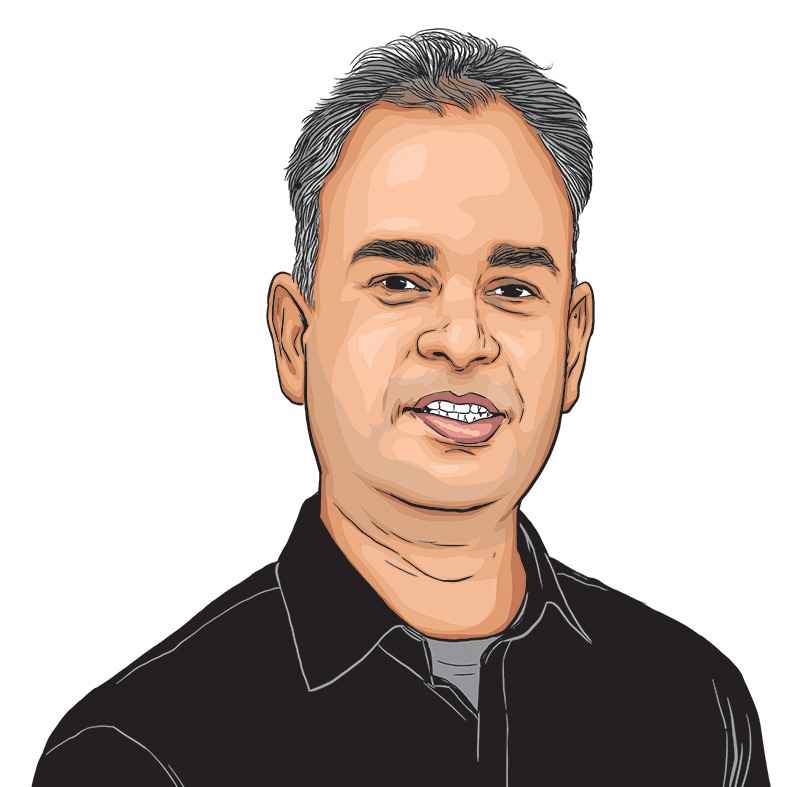Opinion No nation deserves Ukraine’s fate: A war it cannot win, a peace it cannot accept
As Russian forces tighten their grip and Donald Trump pushes a pro-Moscow peace plan, Kyiv faces an “impossible choice” between national dignity and losing crucial Western support
 Ukraine's President Volodymyr Zelenskyy and other European leaders will find it extremely difficult to endorse Trump's peace deal.
Ukraine's President Volodymyr Zelenskyy and other European leaders will find it extremely difficult to endorse Trump's peace deal. No country deserves the fate of Ukraine. Its territory is under siege, its people have endured prolonged suffering, and its leadership is under pressure to accept a peace plan which largely favours Russia. Ukraine stands as a poignant reminder of the perils associated with relying on external support for conflict and security.
The Ukrainian leadership miscalculated the support it expected to receive from Western states. Left to its own devices, Ukraine would have pursued a balanced policy and could have avoided a prolonged war with the world’s second most powerful military. But the West assured Ukraine of long-term support and offered NATO membership, a proposal that the Ukrainian leadership found too tempting to resist. Blinded by Western narratives and promises of support, Kyiv underestimated Russia’s capacity to endure suffering and casualties. The Ukrainian military fought with exceptional courage and valour, but in a war against a formidable military, courage cannot be a substitute for sophisticated weapons and warfare technology.
Ukraine is incurring heavy losses at the frontline and cannot resist the mounting Russian pressure. It is facing manpower and material shortages against the intensifying Russian assaults. Russian troops have besieged the city of Pokrovsk, an industrial hub, where Ukrainian forces had fortified themselves. This city is crucial to Ukraine’s military supply chain, given its extensive rail and road network connectivity. Moscow is celebrating the imminent fall of Pokrovsk because it offers a significant operational advantage and is considered the most substantial territorial gain since the fall of Avdiivka in February 2024. Russia aims to capture the entire Donbas region, comprising the Luhansk and Donetsk provinces. However, Ukraine still controls approximately 10 per cent of Donbas. Moscow seeks to acquire the entire Donbas either through a peace deal or by military means.
In the latest development, US President Donald Trump has proposed a 28-point peace deal to end the war. It is a deal that accepts Moscow’s maximalist demands and Kyiv will have to recognise the Donbas region as Russian territory. It will also have to forgo NATO membership. Further, Western troops will not be deployed in Ukraine, and the number of Ukrainian armed forces will be reduced to 600,000. In addition, the deal also opens the door for Russia’s entry into the G7 again, a privilege that it lost in 2014 after its capture of Crimea.
President Putin could not have expected a deal better than this even under favourable circumstances. Russia initiated the war for two primary purposes: To stop Ukraine from becoming a member of NATO and to prevent the Ukrainian regime from pursuing discriminatory policies towards the Russian-speaking population, especially in the Donbas region. If these objectives are achieved, Putin can claim a victory and justify the heavy casualties as a sine qua non for defending Russia.
But Ukraine’s President Volodymyr Zelenskyy and other European leaders will find it extremely difficult to endorse Trump’s peace deal. Zelenskyy is under intense domestic pressure owing to military reversals and charges of corruption involving his close associates. The only consolation prize being offered to Ukraine is an ambiguous “security guarantee”. How Ukraine will defend itself with a weakened military and limited external support remains uncertain.
Venting his frustration with this deal, Zelenskyy remarked that his country had an “impossible choice”. It could keep its national dignity or risk losing a major partner. Similarly, some European leaders consider such concessions to Russia as absurd and an outright capitulation. The EU’s foreign policy chief, Kaja Kallas, warned, “If you just give in to aggression, then you invite more aggression.” Therefore, it is unlikely that the deal will proceed in its current form. European leaders are likely to propose a new plan.
Trump is coercing Zelenskyy to sign off on the plan before Thanksgiving. Trapped between a terrible war and a humiliating peace, Ukraine has never appeared so vulnerable. For the Kremlin, it must be a moment of schadenfreude.
The writer is professor, School of International Studies, Jawaharlal Nehru University, Delhi





